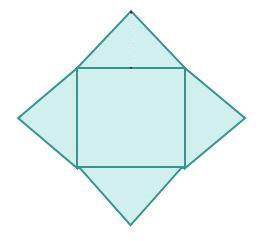If the discriminate of a quadratic equation is negative
a. there will be 2 solutions eith...

Mathematics, 05.05.2020 10:47 garcia36
If the discriminate of a quadratic equation is negative
a. there will be 2 solutions either of which may be positive or negative
b. there will be only one solution
c. there will be 2 solutions but they will both be negative
d. there will be 2 solutions but they will both be positive
the
e. none of these

Answers: 2


Another question on Mathematics

Mathematics, 21.06.2019 15:30
Enter the missing numbers in the boxes to complete the table of equivalent ratios of lengths to widths. ? 18 8 ? 10 30 12 ?
Answers: 3

Mathematics, 21.06.2019 18:30
Which of the following correctly justifies statement four of the two column proof? a. corresponding angles theorem b. transitive property of equality c. vertical angle theorem d. substitution property of equality
Answers: 1

Mathematics, 21.06.2019 19:10
The triangles in the diagram are congruent. if mzf = 40°, mza = 80°, and mzg = 60°, what is mzb?
Answers: 2

Mathematics, 21.06.2019 19:50
Type the correct answer in each box. spell all words correctly. a sequence of transformations maps ∆abc onto ∆a″b″c″. the type of transformation that maps ∆abc onto ∆a′b′c′ is a . when ∆a′b′c′ is reflected across the line x = -2 to form ∆a″b″c″, vertex of ∆a″b″c″ will have the same coordinates as b′.
Answers: 1
You know the right answer?
Questions

Mathematics, 19.05.2020 02:06


Mathematics, 19.05.2020 02:06


Mathematics, 19.05.2020 02:06


History, 19.05.2020 02:06

Mathematics, 19.05.2020 02:06

History, 19.05.2020 02:06

Mathematics, 19.05.2020 02:06


Biology, 19.05.2020 02:06

English, 19.05.2020 02:06





Computers and Technology, 19.05.2020 02:06

Geography, 19.05.2020 02:06

Mathematics, 19.05.2020 02:06




